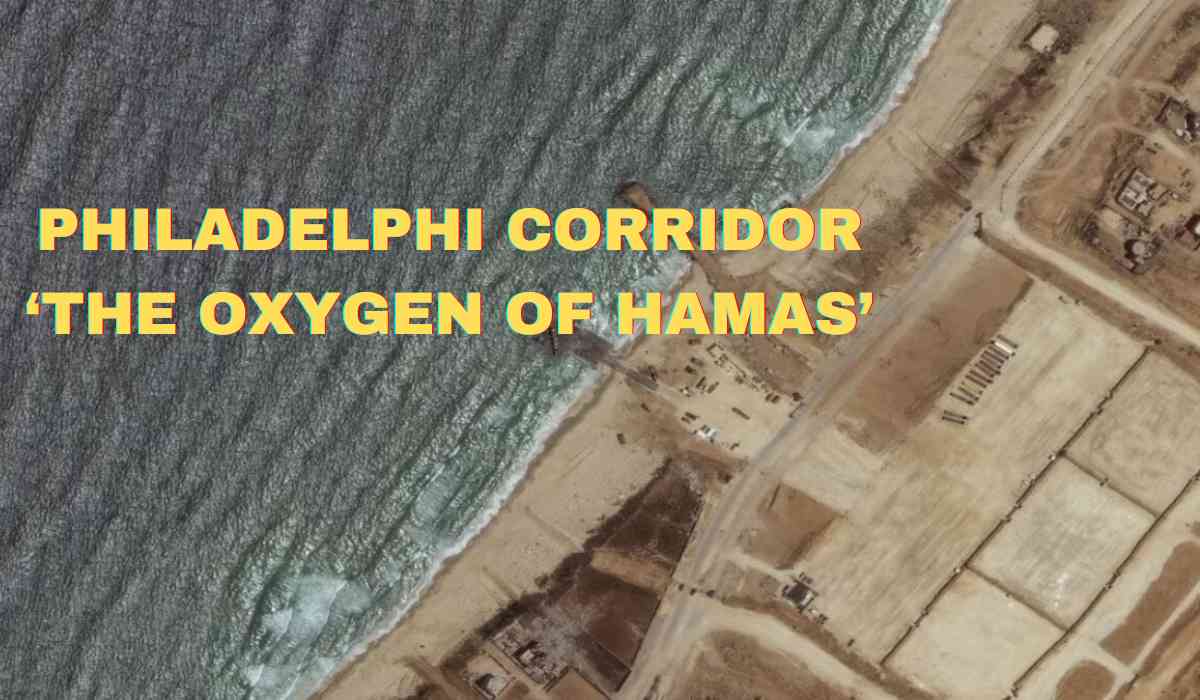As tensions flare in the Gaza Strip, the IDF's seizure of the strategic Philadelphi Corridor aims to cut off Hamas' lifeline and disrupt the intricate network of smuggling tunnels fueling the conflict.
In the ongoing Israel-Hamas conflict, the IDF has declared full "operational control" over the Philadelphi Corridor, a critical area along the Gaza-Egypt border spanning 14 kilometers. While IDF troops occupy most of the corridor, a coastal section remains unmanned, although under surveillance and firepower. The IDF's takeover has uncovered around 20 tunnels linking Gaza to Egypt, allegedly used by Hamas for weapon smuggling. This strategic move underscores the significance of securing the region amid escalating tensions.
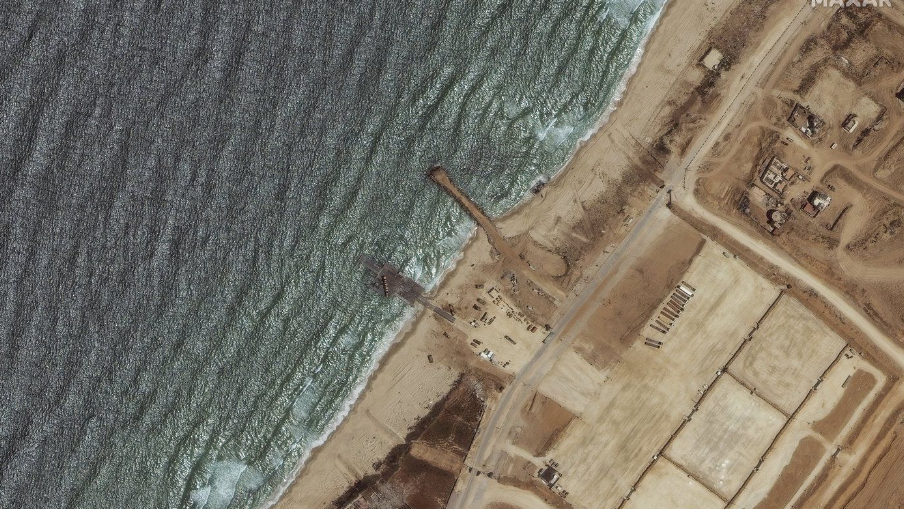
Israel seizes key area on Gaza-Egypt border
The IDF announced the seizure of a key corridor along Gaza's border with Egypt to disrupt smuggling tunnels in efforts to dismantle Hamas. This move, capturing the Philadelphi Corridor, may strain Israel's relationship with Egypt, which has expressed concern about Israeli advancements toward its border.
Despite years of blockade by Israel and Egypt, the corridor has been utilized for smuggling weapons and goods to Hamas. In tandem, Israel has intensified its presence in Rafah, southern Gaza, where escalating violence has claimed numerous Palestinian lives.
The IDF has reinforced its troops in the city, deploying thousands to the area. Egypt contends that any escalation of troops in this strategic border zone would breach the 1979 peace agreement between the two nations. It has already protested Israel's takeover of the Rafah border crossing, the sole passage between Gaza and Egypt.
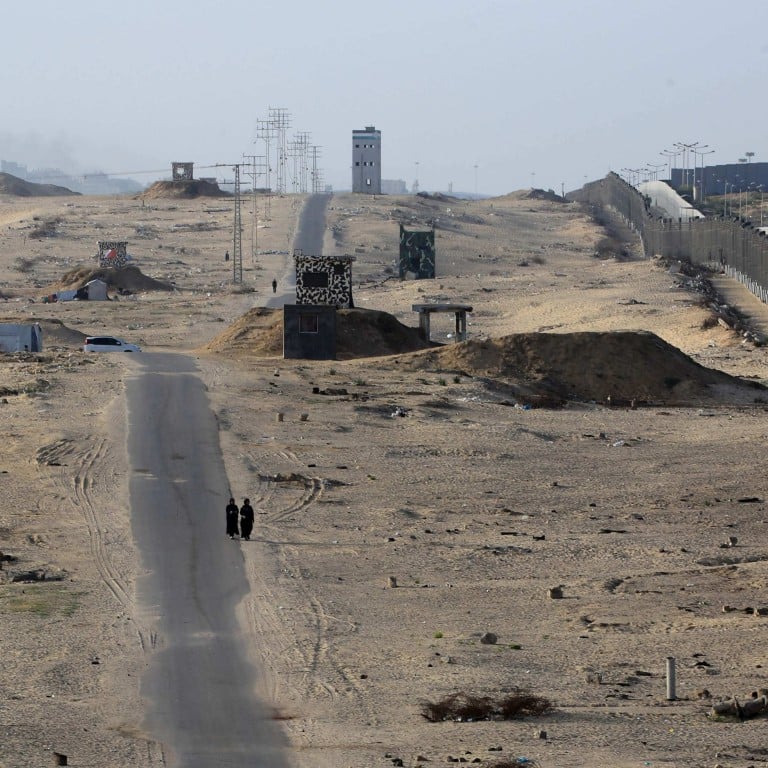
82 tunnel shafts located in the region
In the heart of the region lie 82 secret tunnel shafts, an underground labyrinth harboring unknown mysteries.
Before the ground operation commenced, the military claimed knowledge of some tunnels, yet unveiled the discovery of new ones in the area.
Reportedly, The Times of Israel confirms the demolition of several tunnels by the IDF, with Israeli authorities briefing their Egyptian counterparts on the development. Allegedly, 82 tunnel entrances dot the landscape of the Philadelphi Corridor.
In later updates, the IDF accuses Hamas of strategically placing rocket launchers along the corridor to deter Israeli strikes, exploiting the fear of overshooting into Egypt.
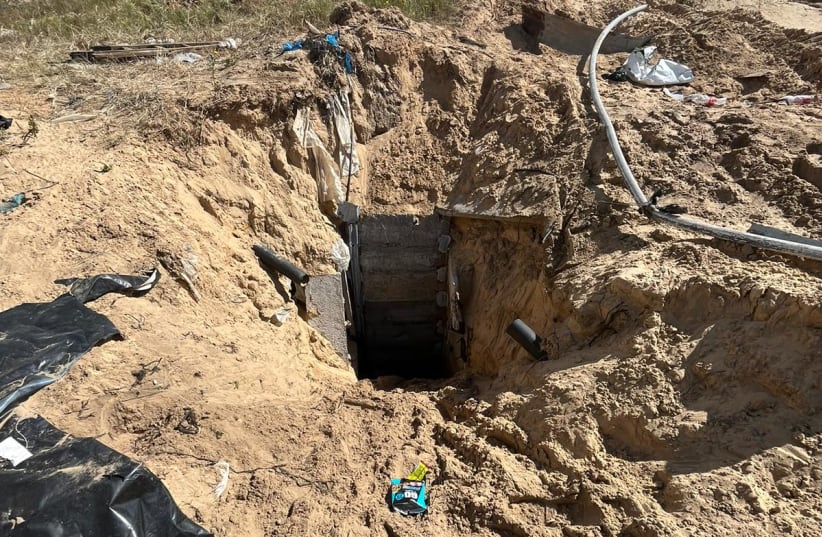
Philadelphi Corridor- ‘The oxygen of Hamas’
The Philadelphi Corridor, alternatively known as the Philadelphi Route, stands as a vital strategic passage delineating the border between the Gaza Strip and Egypt.
Spanning approximately 14 kilometers, this narrow strip of land holds immense significance in the geopolitical landscape of the region.
-
Role of the Corridor:
- Referred to as "the oxygen line of Hamas" by Israel's military spokesperson, Rear Adm. Daniel Hagari, the corridor has historically facilitated the smuggling of weapons into Gaza, sustaining Hamas's operations.
- This lifeline became a contentious issue prompting action from both Israeli and Egyptian authorities.
-
Israeli Withdrawal and Agreements:
- Following a resolution passed by the Knesset in 2004, Israel initiated a unilateral withdrawal of its citizens and forces from the Gaza Strip, completed by August 2005.
- To address security concerns and prevent weapon smuggling, Israel and Egypt forged the "Agreed Arrangements Regarding the Deployment of a Designated Force of Border Guards Along the Border in the Rafah Area," commonly known as the Philadelphi Accord.
-
Philadelphi Accord:
- Under this accord, Egypt was authorized to deploy border guards along the Philadelphi route to patrol its side of the border.
- Control over the Rafah Border Crossing was jointly transferred to the Palestinian Authority and Egypt, with restricted passage for Palestinian ID cardholders and exceptions for others.
-
Criticism and Challenges:
- Despite coordination between Israeli and Egyptian forces as stipulated in the accord, reports of illegal weapons transfers to Palestinian extremist groups through the corridor have surfaced, drawing criticism.
- Egypt has voiced concerns about potential Palestinian influx across the border due to Israeli offensives, which it deems unacceptable.
-
Tunnel Networks:
- A network of clandestine tunnels, some previously undisclosed to Israeli authorities, was discovered along the Gaza-Egypt border.
- These tunnels served as conduits for smuggling weapons, supplies, and commercial goods, posing significant security challenges for both Israeli and Egyptian forces.
-
Operational Details and Discoveries:
- The corridor, approximately 100 meters wide in parts, spans the 8.6-mile length of the Gaza side of the border with Egypt, including the Rafah crossing.
- Hamas, in control of Gaza since 2007, has utilized the corridor to establish over 20 smuggling tunnels, some previously unknown to Israeli authorities, with numerous access points.
-
Utilization and Implications:
- Smuggling tunnels beneath the Gaza-Egypt border circumvent the Israeli-Egyptian blockade imposed after Hamas's takeover, serving as conduits for weapons, supplies, and commercial goods.
- The tunnels facilitated the transport of diverse commodities, from weapons and supplies for Hamas to everyday goods for Gaza residents, some tunnels even accommodating vehicles.
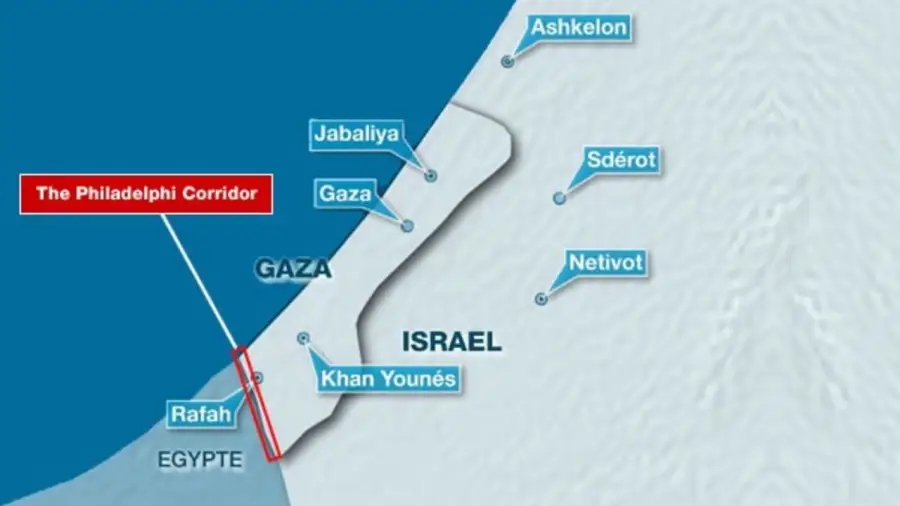
US Support for Israel
Amidst the ongoing developments in the region, the United States has reiterated its support for Israel's actions, particularly concerning the recent events in the Philadelphi Corridor.
White House national security spokesman John Kirby, while addressing reporters, indicated that Israel's maneuvers in the corridor did not breach the Biden administration's established boundaries regarding the conflict in Rafah.
Kirby mentioned, "When [Israel] briefed us on their plans for Rafah, it did include moving along that corridor and out of the city proper to put pressure on Hamas in the city." However, Kirby refrained from confirming whether Israel had taken full control of the corridor, stating, "It's not our op." Nevertheless, he emphasized that Israel's actions aligned with the "limited" ground operation that Israeli officials had previously communicated to the US.
China's Pledge for Gaza Aid at Sino-Arab Summit
Chinese President Xi Jinping, addressing leaders of Arab states at the China-Arab States Cooperation Forum, reiterated China's longstanding support for the establishment of an independent Palestinian state.
Expressing concern over the escalating Palestinian-Israeli conflict, Xi emphasized the need to alleviate the suffering of the affected population, stating, "War should not continue indefinitely." Xi reaffirmed China's commitment to a two-state solution and announced a pledge of 500 million yuan (€65.1 million) in humanitarian aid for Gaza.
Additionally, China pledged €2.7 million to a UN agency dedicated to assisting refugees of the Israel-Hamas conflict. The solidarity between Beijing and Arab states in supporting the Palestinian cause contrasts with the growing international criticism directed towards Israel, particularly following an IDF strike in Rafah that resulted in the deaths of at least 45 civilians over the weekend. The conflict has taken a heavy toll on the Palestinian population, with the Gaza Health Ministry reporting a death toll surpassing 36,000.
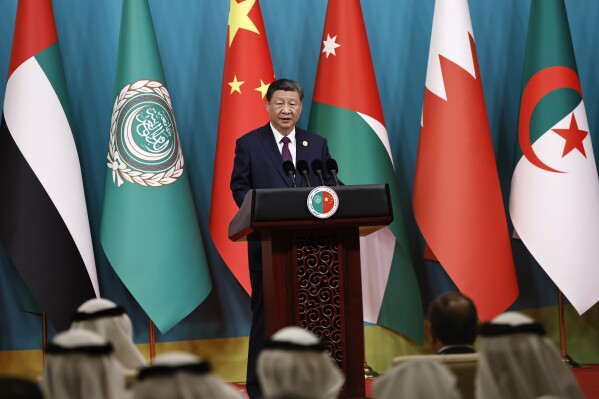
What are the international implications?
Israel's move to control the Philadelphi Corridor is poised to strain its relations with Egypt. The North African country insists that any increase in military presence along this critical border area breaches the 1979 peace agreement between the two nations.
Egypt has already voiced its discontent over Israel's control of the Rafah border crossing, the sole crossing point between Gaza and Egypt. According to Egypt's state-run Al-Qahera News TV, there has been "no communication with the Israeli side" regarding allegations of tunnels found at the border. Conversely, an Israeli military official claimed that Israel had informed Egypt about the takeover.
Egypt has consistently raised alarms that the Israeli military actions might force Palestinians to flee across the border, a scenario it deems unacceptable.
The Philadelphi Corridor remains a focal point in the Israeli-Palestinian conflict, symbolizing the complex interplay of security, politics, and regional dynamics. Efforts to address the challenges posed by this corridor require ongoing cooperation and diplomatic engagement among all stakeholders involved.
Read here for more: All Eyes On Rafah - Social Media Rages As 37 More Die In Gaza
With inputs from agencies
Image Source: Multiple agencies
© Copyright 2024. All Rights Reserved Powered by Vygr Media.

